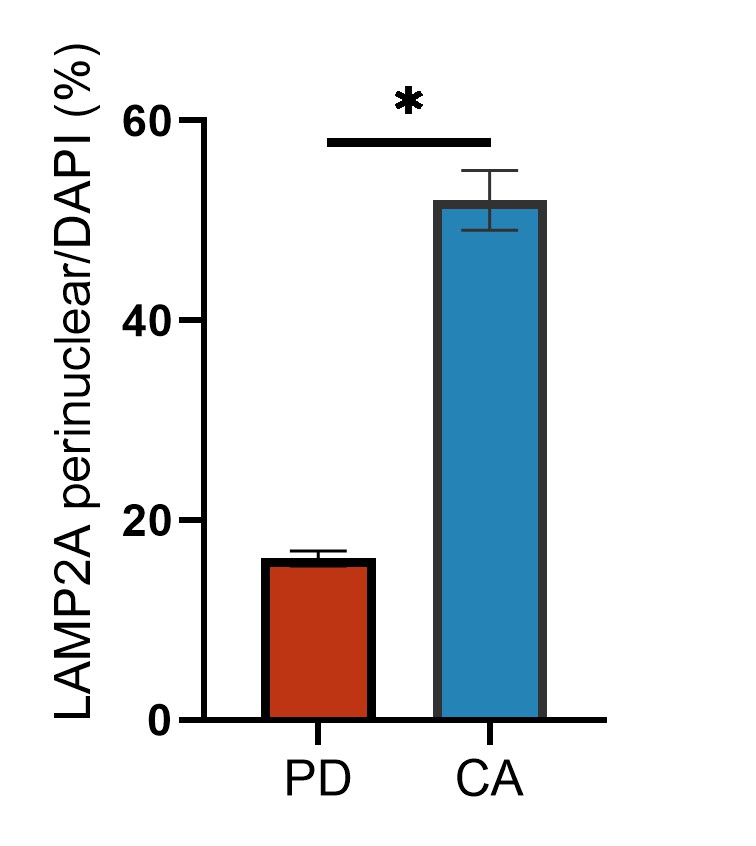Astrocyte Differentiation Service from iPSC
- Service Details
- Features
- Case Study
- FAQ
- Explore Other Options
Astrocytes make up the largest percentage of the central nervous system. During development, astrocytes control synapse formation, maturation, and elimination, and are involved in the close linkage of dendrites and synapses. Once matured, these cells ensure the survival and function of neurons by maintaining ion concentrations, regulating the blood-brain barrier, promoting the formation of white matter myelin, and providing energy supplies. In the adult brain, astrocytes maintain synaptic connectivity and brain metabolism, adapt to fluctuations in neuronal activity to control blood flow, and maintain the equilibrium of the synaptic cleft by absorbing and metabolising neurotransmitters. Astrocytic malfunctions also contribute to neurological conditions.
Using human iPSC-derived astrocytes represents a novel and valuable in vitro model system for neuropsychiatric and neurodegenerative disorders. This technology overcomes the impossibility of using traditional animal models or human autopsy samples to characterise in vitro early pathological processes of disease and the effects of a specific genetic background on disease.
Creative Bioarray offers high-quality iPSC astrocyte differentiation services that enable scientists to explore the morphological and functional diversity of astrocytes. These enable better understanding of the pathogenesis of these cells, and aid in drug screening and targeted therapies.
Creative Bioarray's Astrocyte Differentiation Services from iPSC Include
- iPSC reprogramming: Creative Bioarray employs advanced iPSC reprogramming factor delivery technology, offering multiple viable and cost-effective methods for generating pluripotent stem cells (iPSCs). This ensures that the obtained iPSC cells possess self-renewal capabilities and multipotent differentiation potential, laying a solid foundation for subsequent differentiation.
- Astrocyte induction: Starting from iPSCs derived from healthy donors or pathological conditions, we utilize optimized differentiation media and induction factors to ensure high differentiation efficiency and cellular functionality.
- Marker detection: We utilize various techniques such as immunofluorescence, flow cytometry, and qPCR to detect astrocyte markers like glial fibrillary acidic protein (GFAP) and S100β, as well as other common astrocyte markers. This guarantees the quality and purity of the final products.
- Functional validation: We provide functional validation assays including calcium response experiments, glutamate uptake tests, and neuroprotective assays to ensure that the differentiated astrocytes exhibit proper functionality.
-
Samples required:
If you provide somatic cells: 2-3 vials (106 cells per vial).
If you provide iPSCs or hES: 5 vials (2.5 million cells per vial). -
Deliverables:
2 iPSC clones with 2 vials per clone at (106) cells per vial.
Cryopreserved iPSC-derived astrocytes: >90% GFAP+; S100beta++.
Project report.
Why Choose Our iPSC-Derived Astrocytes
- Disease-relevant models: These cells provide more relevant disease models by avoiding interspecies differences present in animal models.
- Personalized research platform: Patient-derived iPSCs retain the donor's unique genetic background, facilitating individualized research.
- Serves as key research tools: Crucial for studying neuropsychiatric and neurodegenerative diseases.
- Efficient drug screening and therapy development: High efficiency in innovative drug discovery and personalized treatment strategies.
Features of Creative Bioarray's Astrocyte Differentiation Service from iPSCs
- High-purity delivery: Precisely induced and quality-controlled astrocytes with purity greater than 90%.
- Comprehensive quality control: Detailed cellular characterization reports are provided.
- Flexible service content: Tailored service options based on customer needs.
Case Study
During Parkinson's disease (PD), one of the early events of dysfunction in the protein homeostasis system is the disruption of CMA due to the binding of mutant LRRK2 with LAMP2A, leading to the accumulation of α-synuclein. Previous studies have shown that the accumulation and spread of α-synuclein are associated with astrocytes. When PD patient-derived iPSC-derived astrocytes are treated with a CMA activator (CA) (20μM), high-content cellular analysis reveals that LAMP2A-positive lysosomes in CA-treated astrocytes recover their perinuclear distribution and their CMA activity is restored.

FAQ
1. How do you ensure the purity of astrocytes in your differentiation service?
We very carefully regulate the induction factors and conditions of differentiation so that the resulting cells morphology, phenotype, and function identical to native astrocytes. Moreover, we utilize different validation techniques (e.g., qPCR, flow cytometry, immunofluorescence) to verify purity and guarantee the final purity of >90%.
2. What are the benefits of using iPSC-derived astrocytes in experiments?
Patients can donate iPSCs and use them for disease targeted research, drug screening, and therapy development. iPSCs can also be genetically engineered (e.g., CRISPR/Cas9) to understand the effect of specific genes on astrocyte activity.
3. What fields of research are available for differentiated astrocytes?
Differentiated astrocytes can be used in neurodegenerative disease, CNS injuries, brain tumors, and drug screening. They've been deployed in Alzheimer's disease, Parkinson's disease, amyotrophic lateral sclerosis (ALS), Huntington's disease, multiple sclerosis (MS), spinal muscular atrophy (SMA), and more.
4. Can you provide intermediate cell types during the differentiation process?
Yes, we can provide intermediate cell types along with relevant quality control data based on client requirements.
5. Have the astrocytes you provide been functionally validated?
Absolutely, our astrocytes are thoroughly functionally validated before delivery. This includes assessments of marker expression and characteristic behaviors to ensure that the cells fully perform their expected functions.
Quotation and Ordering
Creative Bioarray is committed to providing the finest functionally validated astrocytes to assist you in your neuropsychiatric and neurodegenerative disorders research. If you're interested in this service or any other needs, please feel free to reach out to us. We're looking forward to working with you.
Explore Other Options